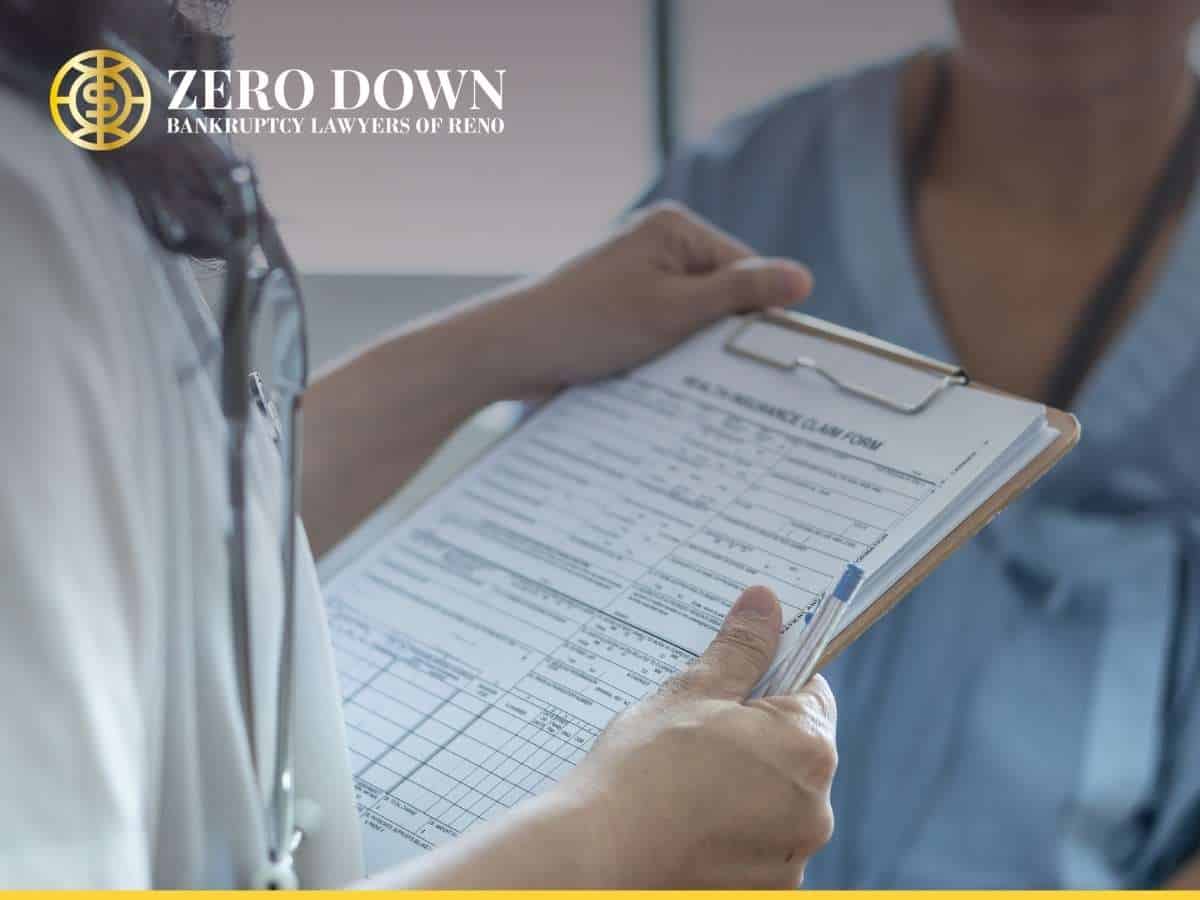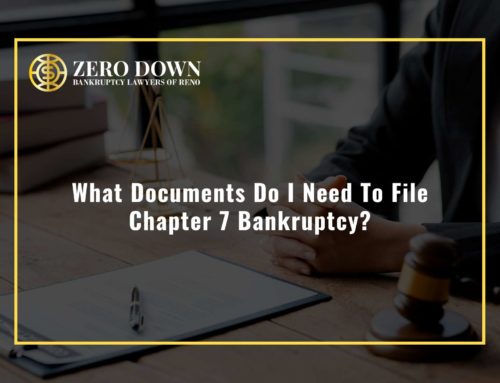What Are My Options When Filing Bankruptcy From Medical Bills?
Can You Clear Medical Debt On Bankruptcy?
If you’re facing overwhelming medical bills, you may be wondering if filing for bankruptcy is an option to discharge your debt. The simple answer is yes; you can get your medical bills discharged if you choose to file either Chapter 7 or Chapter 13 bankruptcy. In fact, medical bills are one of the most common reasons why people file for bankruptcy. Although insurance or an at-fault party may cover your medical bills in some cases, you may also find yourself liable for more medical bills than you could ever pay. In those cases, trying to repay can jeopardize your financial well-being and even hinder your recovery with overwhelming stress.
Although you will find relief from medical bills by filing bankruptcy, there is no special type of bankruptcy filing for just medical bills, so you’ll need to file through the typical routes, such as Chapter 7 or Chapter 13. Contacting a Reno bankruptcy law office is the best way to get started with filing bankruptcy due to medical bills. Your lawyer can examine the situation and help you determine which type of bankruptcy filing would work best for you.
Will My Medical Debts Be Discharged Under Bankruptcy?
Medical debt is considered non-priority unsecured debt in bankruptcy proceedings, making it dischargeable. Unfortunately, you cannot confine your bankruptcy filing only to unpaid medical bills; all of your debts will be discharged, and your assets may be used to pay for your debts, depending on how you choose to file.
After you file for bankruptcy with your Reno bankruptcy attorney, you’ll be assigned a credit counselor and trustee who will be in charge of your bankruptcy. You’ll need to provide documentation of all of your debts, assets, and expenses, such as:
- Personal information
- Bank statements
- Income documentation such as paystubs or online payment records from your employer
- Information about real estate that you own or carry a mortgage on
- Vehicle titles
- A list of your assets
- Proof that you’ve received credit counseling
- Bankruptcy process will be different depending on which type of bankruptcy you file.
You can address your overwhelming medical debt by either filing Chapter 7 or Chapter 13 bankruptcy. The two bankruptcy processes are different, as you will see in the sections below.
Should I File For Chapter 7 Or Chapter 13 Bankruptcy?
The two most common types of a bankruptcy filing are known as Chapter 7 and Chapter 13. Each has its own requirements, advantages, and disadvantages, so discuss this carefully with your Reno bankruptcy attorney before you make a decision. Both types of bankruptcy filing will ultimately discharge your medical debt but in different ways.
In order to file for Chapter 7 bankruptcy, you must not exceed certain income requirements. Your bankruptcy trustee will be able to sell your assets, including your home, and garnish other assets, such as your savings account, an inheritance, or insurance payouts, in order to pay off your debts. Chapter 7 bankruptcy filing will quickly eliminate all debt within 4-6 months of filing, after which all of your remaining debt will be forgiven. The downside to filing Chapter 7 is that it will be reflected on your credit report for up to ten years and may prevent you from qualifying for loans, buying a home, or negotiating better financial terms.
In contrast, a Chapter 13 bankruptcy is essentially a repayment plan for some or all of your debts. Your debt, income, and assets will be considered, and the court will formulate an affordable repayment plan for your debt that is typically around 15% of your monthly disposable income. You will be required to make timely payments to your creditors. At the end of 3-5 years of repayment, your remaining debts will be forgiven.
The advantage of Reno Chapter 13 bankruptcy is that you will be able to retain assets such as your savings account, your home, vehicles, and more. On the negative side, Chapter 13 has a debt limit and takes multiple years to resolve. A Chapter 13 bankruptcy will remain on your credit report for 7 years.
Ultimately, you and your attorney will need to consider the facts of your situation and determine which type of bankruptcy you qualify for and which is best for you.
Are You Overwhelmed With Unpaid Medical Bills?
Even with health insurance coverage, medical bills can be overwhelming, especially after a devastating accident or serious illness. The cost of treatments can quickly lead to crushing amounts of medical debt. If you are unable to work due to your injuries or illness, the pressure can be even more intense. If you are feeling overwhelmed with medical debt, contact an experienced Reno bankruptcy law office who can review your circumstances, walk you through the bankruptcy process, and provide legal advice every step of the way. Your lawyer can represent you at bankruptcy hearings and deal with debt collection agencies on your behalf.
Are There Other Alternative Ways To Reduce Or Pay Medical Debts?
Before you file for bankruptcy, always consider other options. Make sure your medical bill charges are correct and that everything has been submitted to your insurance company for maximum coverage.
Work With Reno’s Trusted Bankruptcy Lawyer
Zero Down Bankruptcy Lawyers of Reno are ready to help you assess your debt options, provide solid advice, and represent you through the bankruptcy process. We offer flexible repayment plans and do not charge anything until your case is complete. Let us help you get rid of overwhelming medical debts and gain a fresh start! Contact us today for your confidential consultation.
Zero Down Bankruptcy Lawyers Of Reno
Email: info@renobankruptcylawyer.co
Phone: (702) 842-0700
Las Vegas:
5552 Ashley Creek St
Las Vegas, NV 89135
North Las Vegas:
7251 W Lake Mead Blvd
Las Vegas, NV 89128
Henderson:
1489 W Warm Springs Rd #110
Henderson, NV 89014










